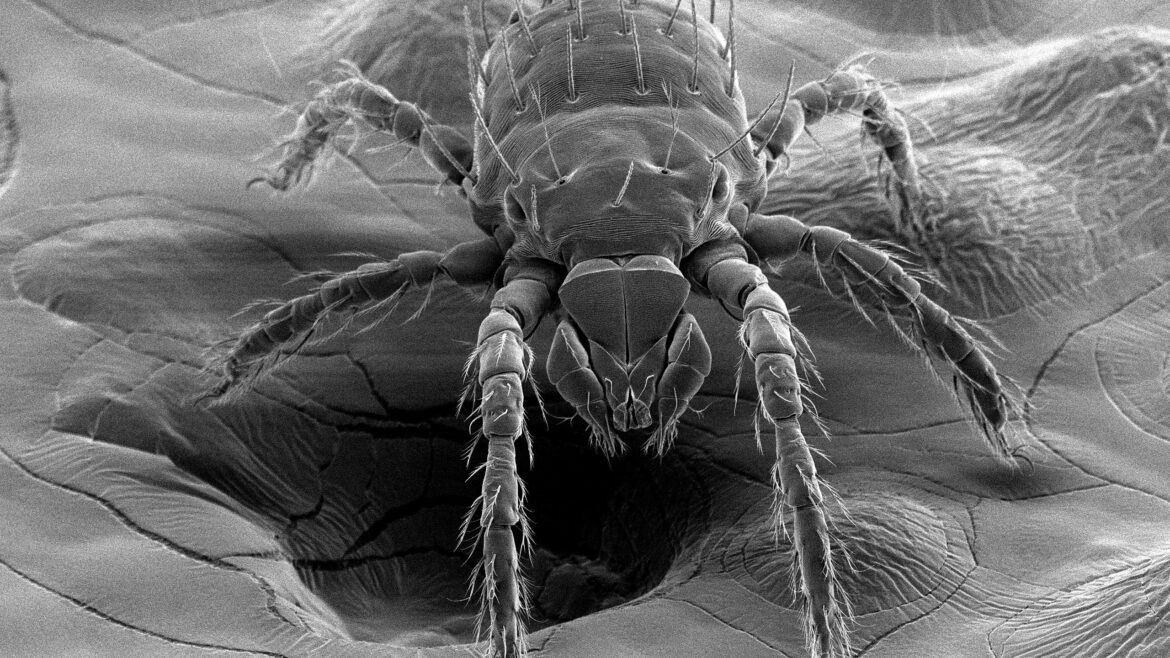Researchers in North Carolina have identified the presence of the bacterium responsible for scrub typhus, a severe disease, within local chiggers. This discovery has raised important questions about the origins of the disease and potential health risks, prompting further investigations to evaluate its implications.
A novel study conducted by scientists from North Carolina State University and UNC-Greensboro has revealed the presence of the bacterium that causes scrub typhus in North Carolina. Scrub typhus, a disease not previously reported in the United States, can lead to symptoms such as fever, headache, and body aches and, if left untreated with antibiotics, can be fatal.
It’s crucial to note that scrub typhus has not yet been detected in animals or humans within the state, underscoring the importance of ongoing research to monitor the situation closely.
Research Approach and Key Findings
The researchers from NC State made their discovery while conducting tests on free-living larval trombiculid mites, commonly known as chiggers, in various recreational parks across North Carolina. They sought to determine whether these chiggers carried the Orientia bacterium, the genus responsible for scrub typhus.
Loganathan Ponnusamy, an NC State principal research scholar in entomology and co-author of the research paper, explained their methodology. They placed black tiles on the ground in ten different state parks and collected chiggers as they crossed the tiles. Microbiome studies allowed them to characterize all the bacteria found in the chiggers. Remarkably, one park exhibited a 90% positivity rate for the bacterium, while another displayed an 80% positivity rate. In contrast, other parks showed much lower positivity rates of only 10%.
Chiggers as Disease Vectors
Trombiculid mites are parasitic only during their larval stage and actively seek vertebrate hosts, including humans, to bite. Ponnusamy emphasized that chiggers can transmit bacteria to people or rodents when they bite and can also pass the bacteria to future generations of mites through their eggs.
Resemblance to Rocky Mountain Spotted Fever
The symptoms of scrub typhus closely resemble those of Rocky Mountain spotted fever, a disease traditionally associated with tick bites.
Global Spread and Uncertainties
While scrub typhus is more commonly found in Asia and the Pacific, recent years have seen its emergence in Africa and the Middle East. It remains uncertain whether this spread is a result of human activities or the transportation of goods carrying chiggers from one region to another.
R. Michael Roe, William Neal Reynolds Distinguished Professor of Entomology at NC State and co-author of the paper, highlighted the need to determine whether the bacterium has recently been introduced to the state or if it has been present for an extended period. Additionally, the researchers must establish whether the infected chiggers in North Carolina have the potential to cause disease, a question that requires further investigation.
Ongoing Research and Future Directions
Kaiying Chen, a postdoctoral research scholar at NC State and lead author of the paper, emphasized the importance of monitoring the chigger infection rate in North Carolina to understand whether it is increasing or decreasing. The researchers are conducting resampling efforts at recreational park sites to validate their initial findings.
This study was published in the journal “Emerging Infectious Diseases” and received funding from various sources, including the National Institutes of Health and the Department of the Army. The authors’ findings highlight the need for continued research to assess the potential public health impact of scrub typhus in North Carolina and its broader implications.
Table of Contents
Frequently Asked Questions (FAQs) about Scrub Typhus Bacterium
What is scrub typhus, and why is its detection in North Carolina significant?
Scrub typhus is a serious disease caused by a bacterium. Its detection in North Carolina is significant because it’s a disease not previously reported in the United States, raising concerns about its origins and potential health risks.
What are the symptoms of scrub typhus?
Symptoms of scrub typhus include fever, headache, and body aches. If left untreated with antibiotics, it can be fatal.
How was the scrub typhus bacterium detected in North Carolina?
Researchers from North Carolina State University and UNC-Greensboro conducted tests on chiggers, or trombiculid mites, in recreational parks across North Carolina. They used microbiome studies to identify the presence of the bacterium in these mites.
Can chiggers transmit scrub typhus to humans?
Yes, chiggers can transmit the bacterium responsible for scrub typhus to humans when they bite. They can also pass the bacterium to future generations of mites through their eggs.
What is the similarity between scrub typhus and Rocky Mountain spotted fever?
Scrub typhus and Rocky Mountain spotted fever share similar symptoms, making it important to distinguish between them for accurate diagnosis and treatment.
How has scrub typhus spread globally, and what are the uncertainties surrounding its spread?
Scrub typhus is more commonly found in Asia and the Pacific but has been detected in Africa and the Middle East in recent years. It remains uncertain whether this spread is due to human activities or the transport of goods carrying chiggers from one region to another.
What are the future research directions regarding scrub typhus in North Carolina?
Ongoing research aims to determine if the bacterium has been present in the state for an extended period or if it is a recent introduction. Additionally, researchers are monitoring the chigger infection rate to understand whether it is increasing or decreasing.
What funding sources supported this research?
This research received funding from the National Institutes of Health, the Department of the Army, and other sources.



5 comments
Wat other diseases r like scrub typhus? R we safe in NC? Need answers!
Good info but needs more punctuation & grammar check, like “it’s” not “its” in Q1.
Research funding sources r essential 2 kno, shows credibility & support 4 the study.
Imp stuff 2 know abt scrub typhus symptoms & chiggers spreadin diseases, kudos 2 the researchers!
really informative stuff bout scrub typhus & chiggers in NC! 4got it wasnt in US b4, cud b big deal!